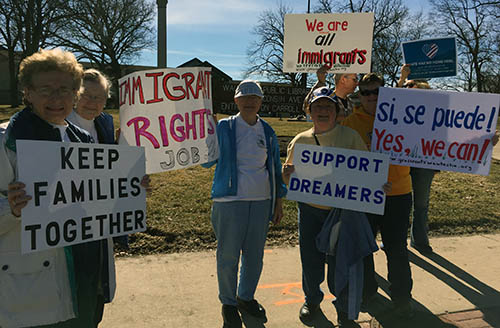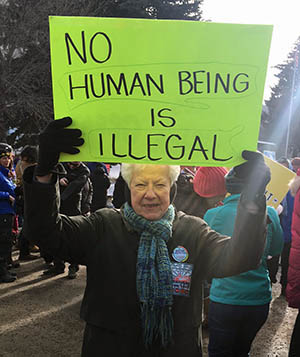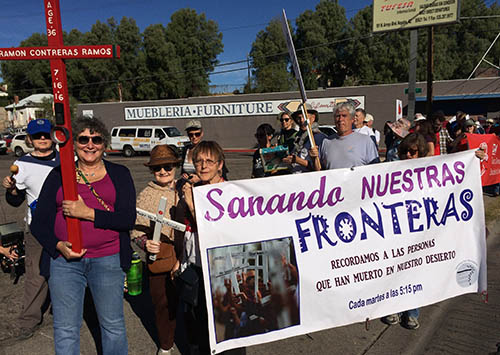

Defining Terms
Immigrant: An immigrant is a person who has moved into a destination country, where they are not natives or where they do not possess citizenship, in order to settle or reside, especially as permanent residents or naturalized citizens, or to take-up employment as a migrant worker or temporarily as a foreign worker. Migrant: Anyone moving from one country to another is considered a migrant unless he or she is specifically fleeing a proven situation of war or persecution in which case he or she can be considered a Refugee.
Why be concerned?
Human migration has been a reality since the origin of the species. While people migrate for a variety of reasons, forced human migration and displacement is a growing global reality. According to the United Nations, there are as many as 244 million migrants across the world today - a 40 percent increase from the year 2000. As of the beginning of 2016, more than 60 million - or nearly 1 in 100 people worldwide - have been forcibly displaced from their homes, the highest number and share of the world’s population since World War II. Migrants, refugees and immigrants all face dangers in their efforts to seek better lives. They are frequently exploited, are vulnerable to human traffickers and face suspicion, fears and violence, as well as the lack of clear and practical policies and programs in countries where they seek safety.
There are approximately 11 million undocumented immigrants living and working in the United States. There are many push and pull factors which compel people to leave their homelands and enter or remain beyond visa limits in the United States. U.S. immigration policy has not been comprehensively reformed since the 1980's. As a result, people who wish to legally migrate to the United States often have to wait as many as 20 years to have their application processed. Stop gap measures such as immigration detention and deportation without due process, racial profiling and arbitrary immigration raids are on the rise in the United States. These matters raise grave concerns about the integrity of our Constitution and the future of our nation.

Learn more
- Root Causes of Migration from OneAmerica
- The International Organization for Migration
- Educational Resources from Justice for Immigrants (Updated articles on immigration issues, DACA, women and immigration, current polices, knowing your rights)
- Myths and Facts about Immigration
- Immigrants' Rights
- Key facts about Refugees in the United States from the Pew Research Center
- FAQs about Refugees in the United States
- Steps in the vetting process for refugees in the United States
- Three Basic Principles of Catholic Social Teaching on immigration
- Opinion “What should guide immigration policy”
- DACA and Dreamer Resources
- Loving Our Immigrant Neighbors during the Coronavirus Pandemic
- 10 Things You Can Do to Accompany Undocumented Immigrants
What does this have to do with our faith commitment?
The Judeo-Christian tradition has long held that it is our responsibility to “welcome the stranger and refugee.” Pope Francis has said that “In the face of tragedies which take the lives of so many migrants and refugees – conflicts, persecutions, forms of abuse, violence, death – expressions of empathy and compassion cannot help but spontaneously well-up. Solidarity is born precisely from the capacity to understand the needs of our brothers and sisters who are in difficulty and to take responsibility for these needs.”

Now that you know, here’s what you can do:
- Share the information above with your network of friends, faith community and contacts.
- Take Action: Make a call to your country's leader or legislators.
- Pray: Prayer for Migrants and Refugees and Collected Prayers for Immigrants.
- Support Fair Trade food and items.
- Contact your U.S. legislators.
